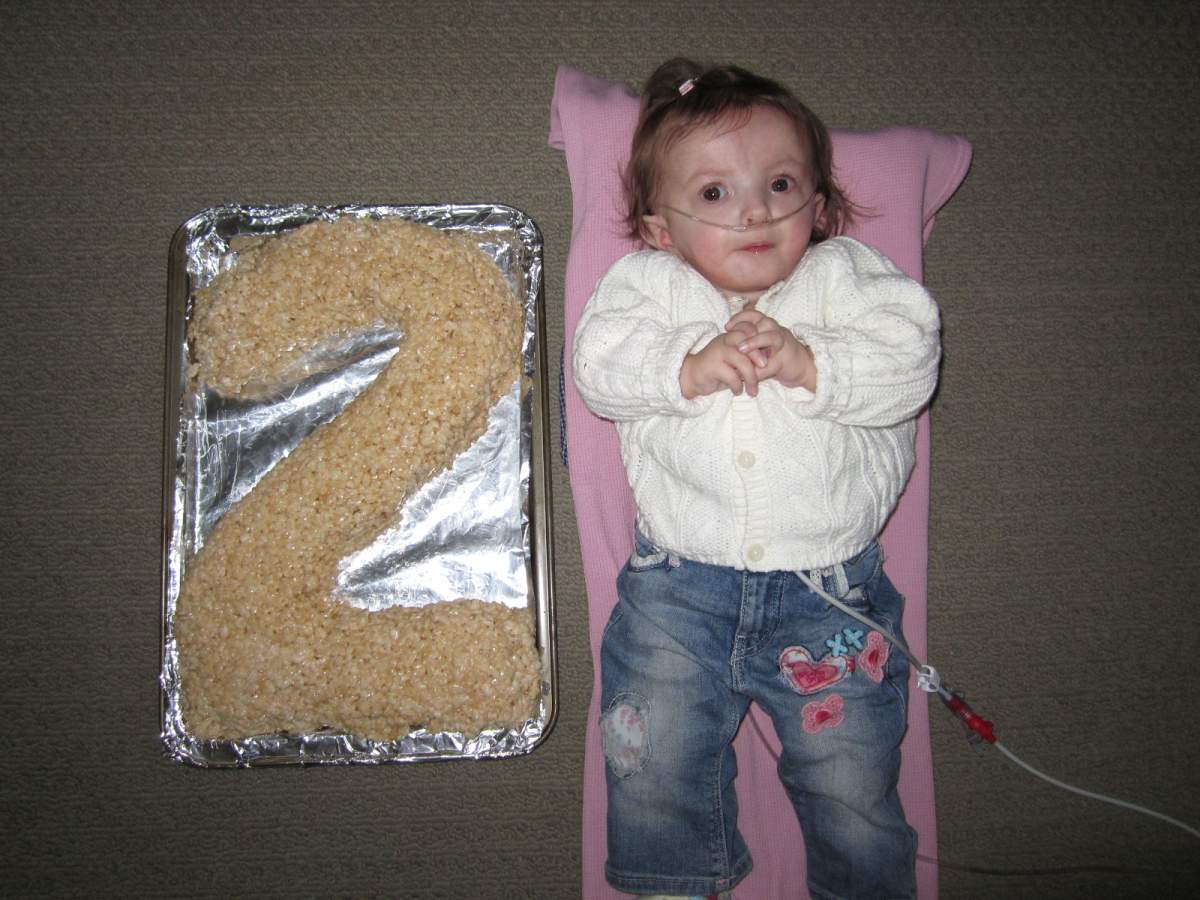When doctors had no name for her daughter’s rare genetic condition, Kim Wittke made up her own.

“I said, ‘She has ECS, which is Extremely Cute Syndrome,'” Wittke laughed.
Wittke’s youngest, Mackenzee, is eight years old. Except for her hair and nails, she hasn’t grown in years. About the size of a two-year-old, Mackenzee still needs a baby car seat.
Developmentally, she is like a nine-month-old; she can’t speak or walk, but she laughs and loves peekaboo. The only developmental milestone she has hit is starting school, at Sherwood Park’s Westboro Elementary.
But a Florida research team hopes Mackenzee can teach them a thing or two about the aging process.
Dr. Richard Walker has identified about a dozen girls similar to Mackenzee around the world. The oldest is 26. She also looks like a toddler.
“My theory of aging is that there’s a continuation of the developmental program which causes change in our body, ” said Walker, editor in chief of the journal Clinical Interventions in Aging.

Get weekly health news
Walker suspects that genetic program drives humans to develop from two cells into reproductive age. Ideally, it would stop when we’re at our physical peak in our 20s. But it keeps going, causing age-related disease.
“My hypothesis is there must be an ‘off’ switch… a switch that controls this movement,” said Walker.
“We were trying to find that, and hoped that in these girls… that key could be found.”
So far the team has found non-hereditary genetic mutations in each girl, but not in the same gene. And despite the girls’ youthful appearance, their tissues have showed signs of getting older. But the team isn’t giving up yet.
Wittke hopes her daughter could help prevent age-related illnesses.
“My mom just passed away from cancer eight months ago, and I mean, if we could slow down certain things, I think that would be pretty astounding to see,” said Wittke, with tears in her eyes.
When Mackenzee was born, Wittke was told her daughter had just a few days to live. Doctors suspected she had a chromosomal condition that few babies survive. Then genetic testing showed her chromosomes were normal. She’s been a medical mystery ever since.
Despite enduring surgery on every major organ, Mackenzee is one happy little girl.
“She laughs and she giggles and she smiles,” Wittke said. “She teaches our family to still find joy in some of those really tough circumstances.”
“She’s taught us probably way more than I’ll – as a mom – be able to teach her.”





Comments